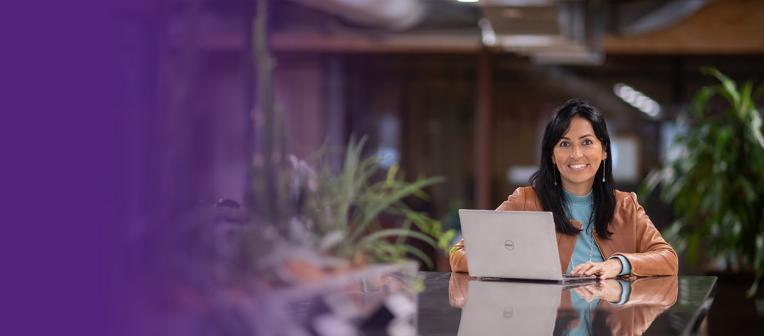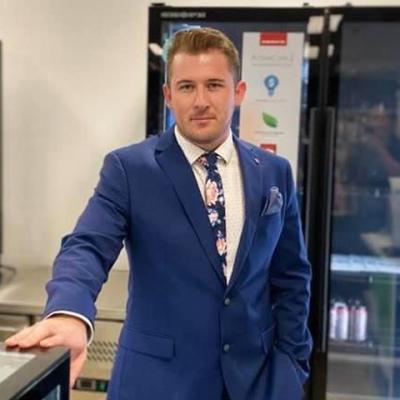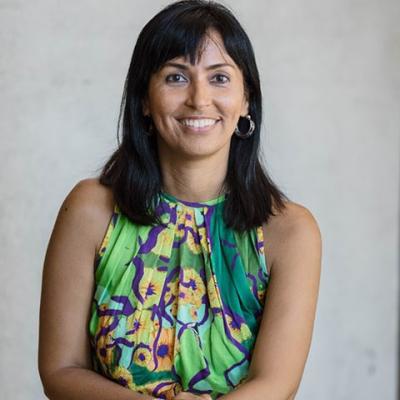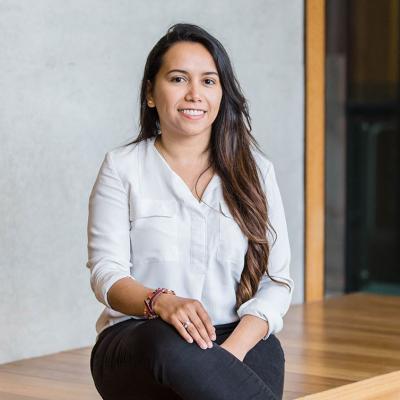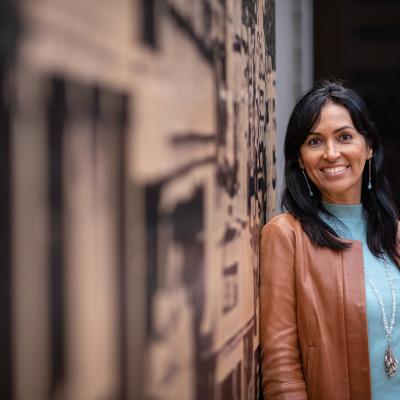Are entrepreneurs and innovators born or made? In a time when change is the only constant, the truth is everyone should develop entrepreneurial skills.
Jordan Davies and Natalie Hurtado are both graduates of UQ’s Master of Entrepreneurship and Innovation. They share why they enrolled in this program, what they’ve learned about innovation, and how it’s empowered them to face an uncertain future.
Why did you choose to study the Master of Entrepreneurship and Innovation at UQ?
Jordan: I've always been interested in the entrepreneurship sector. When I was about 9 years old, I would charge people living in my block of units to bring their bins out to the street.
As I got older, I realised I wanted to get into entrepreneurship more. I knew the UQ Business School had a solid foundation of entrepreneurship and resources like UQ Ventures. The campus itself is also incredible.
I started in the Graduate Certificate of Entrepreneurship and Innovation first. Then, after 6 months, I decided to do the rest of the master’s degree because I loved it so much.
Natalie: After working for many years in insurance, I had this idea to start my own business. I knew about UQ’s excellent international reputation and I had some friends that had already started studying here.
"The UQ Master of Entrepreneurship and Innovation was a natural path for me. It allowed me to develop my entrepreneurial skills while nurturing my interest in sustainability and sustainable finance."
What key skills have you taken away from this entrepreneurship degree?
Jordan: One of the best things about the Master of Entrepreneurship and Innovation is that you can start applying what you’re learning immediately to your professional life and business.
The Lean Startup capstone course gave me the opportunity to be out in the field interviewing people, knocking on doors and talking to businesses. This exciting hands-on experience taught me a lot about critical communication and research skills.
Natalie: As an entrepreneur, it’s one thing to have an idea. But we also need to listen to what our potential customers value and what will make a difference in their lives.
The capstone course gives you the opportunity to check and validate ideas with customers or other stakeholders. This process is crucial for small businesses and startups so they can rapidly adjust to what people actually need. The program helped me develop critical communication skills as well as the ability to be open-minded and resilient. These skills are useful in many different roles.
Did you have a lightbulb moment during this entrepreneurship program that changed your way of thinking?
Jordan: I learned that being an entrepreneur doesn't mean you can’t do anything else. For example, if you work in medicine or accounting or logistics, you don't have to give that up to become an entrepreneur. You can do both.
Natalie: There’s a common misconception that entrepreneurs are born, not made. I learned if you develop certain skills, learn methodology and work hard, anyone can become an entrepreneur.
How have UQ programs like Ventures Curiosity and the Ventures ilab Accelerator supported your learning?
Jordan: In the Ventures Curiosity program, you have 40 minutes to create a product, launch it and pitch it. It's a really fun process because you're dealing with so many different people from diverse backgrounds, like engineering, arts and accounting, and they all have such amazing ideas. Over 6 weeks, you also get to hear guest speakers share their own inspirational entrepreneurship journeys. It was an invaluable program to be a part of.
Natalie: In my first year of studying, I participated in a 4-month Global Business Challenge. My team finished in second place after beating over 600 teams from 62 countries, which was huge for us in that moment.
“Participating in this challenge gave me the confidence to continue investing my energy into my startup idea, ARTEH. It also provided some funding for me to start the business properly and the opportunity to meet like-minded people who are still part of my support team and business today.”
I also participated in the UQ Ventures ilab accelerator program for 4 months. The experience provided me with:
- human and financial resources
- access to an expanded network
- the credibility and visibility to make my business concrete.
After ilab, my co-founders and I developed our minimum viable product, incorporated the company and acquired our first customers.
What’s your advice for anyone thinking about studying the Master of Entrepreneurship and Innovation?
Jordan: You don’t need to wait to have a brilliant idea before you enrol in this entrepreneurship program. If you already have a great idea, you can apply what you’ve learnt straight away to it. But if you don’t already have a business idea in mind when you start the program, you’ll form lots of ideas once you start studying.
Natalie: Developing an entrepreneurial mindset is important for everyone, not just entrepreneurs.
How can you tailor the Master of Entrepreneurship and Innovation program to suit your lifestyle and other priorities?
Jordan: Whether you’re studying part time or full time, the number of hours you spend studying each week depends on the course and what mark you're trying to achieve. Obviously, if you want high marks, you must spend a lot more time studying.
Natalie: I started the program full time but then I reduced the number of courses I was taking. So, instead of completing the program in 1.5 years, I did it over 2 years.
This allowed me to delve into the amazing course content, do well in assignments and apply what I was learning. It also meant I could take care of my home, give my family the attention they needed and go to the gym almost every day.
Develop the innovation and entrepreneurship knowledge and skills to transform business and society with the Master of Entrepreneurship and Innovation.

